Are you navigating the complexities of foreign contract arbitration and feeling overwhelmed by the legal jargon? You're not alone! In today's globalized business environment, understanding how to effectively handle disputes in international contracts is crucial for success. Join us as we explore practical tips, insightful strategies, and a comprehensive letter template to streamline your arbitration process!
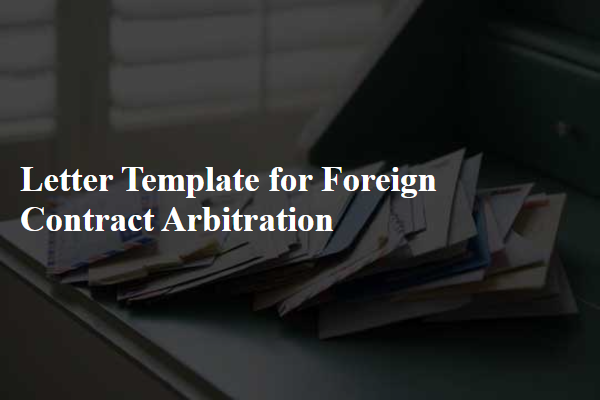
Clear identification of parties involved
In a foreign contract arbitration scenario, party identification is critical. The claimant, often referred to as the "Claimant," is the individual or entity initiating the arbitration process. Typically, the Claimant's registered name, address, and contact information--including email and phone number--are included. The respondent, known as the "Respondent," is the party against whom the arbitration is initiated. Similar details regarding the Respondent's registration, address, and contact information should be meticulously presented. This identification process establishes jurisdiction and ensures that all parties receive proper notification regarding the proceedings. Notably, including the legal representatives of both parties, if applicable, adds clarity to communication channels throughout the arbitration process.
Detailed description of the dispute
The dispute involves a breach of contract between Company A, based in Berlin, Germany, and Company B, located in Toronto, Canada. The contract, signed on January 15, 2022, was for the supply of 10,000 units of electronic components, specifically silicon wafers, with a total value of $1 million USD. The delivery deadline, stipulated as April 30, 2022, was crucial due to Company A's dependence on these components for a scheduled product launch in June 2022. Company B failed to deliver the ordered units by the deadline, citing supply chain disruptions caused by the COVID-19 pandemic. Despite multiple extensions and negotiations, Company B could only deliver 3,000 units by June 15, 2022. This shortfall led to significant financial losses for Company A, including projected sales loss of approximately $500,000 and damage to their market reputation. Attempts to resolve this issue through mediation as per the contract's arbitration clause, dated January 10, 2022, failed, prompting Company A to initiate formal arbitration proceedings in accordance with the International Chamber of Commerce's rules in Paris, France, as stated in the contract.
Applicable arbitration rules and jurisdiction
In foreign contract arbitration, parties often specify applicable arbitration rules, such as the rules set forth by the International Chamber of Commerce (ICC) or the United Nations Commission on International Trade Law (UNCITRAL). These rules govern arbitration procedures, including the appointment of arbitrators, conduct of hearings, and issuance of awards. Jurisdiction is typically determined by the seat of arbitration, which can be a specific city like London or New York, ensuring the arbitration is governed by the local laws and international treaties, such as the New York Convention. The choice of both applicable rules and jurisdiction is critical for enforceability and compliance, influencing how disputes are resolved in an international context.
Language preferences for proceedings
In international arbitration cases, language preferences for proceedings hold significant importance. Parties involved, often from diverse linguistic backgrounds, must select an official language for communication and documentation during arbitration sessions. Common choices include English and French, reflecting their widespread use in global arbitration frameworks. The selection can influence the clarity of legal arguments and evidence presentation. Additionally, the chosen language can impact the tribunal's consistency and efficiency in delivering decisions, especially in high-stakes disputes involving multi-million dollar contracts in industries such as construction or finance. Ensuring all parties understand the proceedings is crucial for a fair outcome, often requiring skilled interpreters or translation services to bridge any potential communication gaps.
Confidentiality and document sharing protocols
Confidentiality in foreign contract arbitration ensures protection of sensitive information for parties involved in disputes. The governing laws, such as the UNCITRAL Model Law, typically mandate confidentiality measures. Document sharing protocols dictate the procedures for exchanging arbitration materials, including notices, claims, and evidences, while ensuring secure transmission. Parties may adopt secure platforms, such as encrypted communication channels, to share documents. Additionally, strict limits should be outlined regarding access to sensitive data, designating authorized personnel only. Breach of confidentiality can result in significant legal repercussions, including fines or loss of case advantages, emphasizing the importance of these protocols in maintaining the integrity of the arbitration process.
Letter Template For Foreign Contract Arbitration Samples
Letter template of arbitration claim submission for cross-border contracts
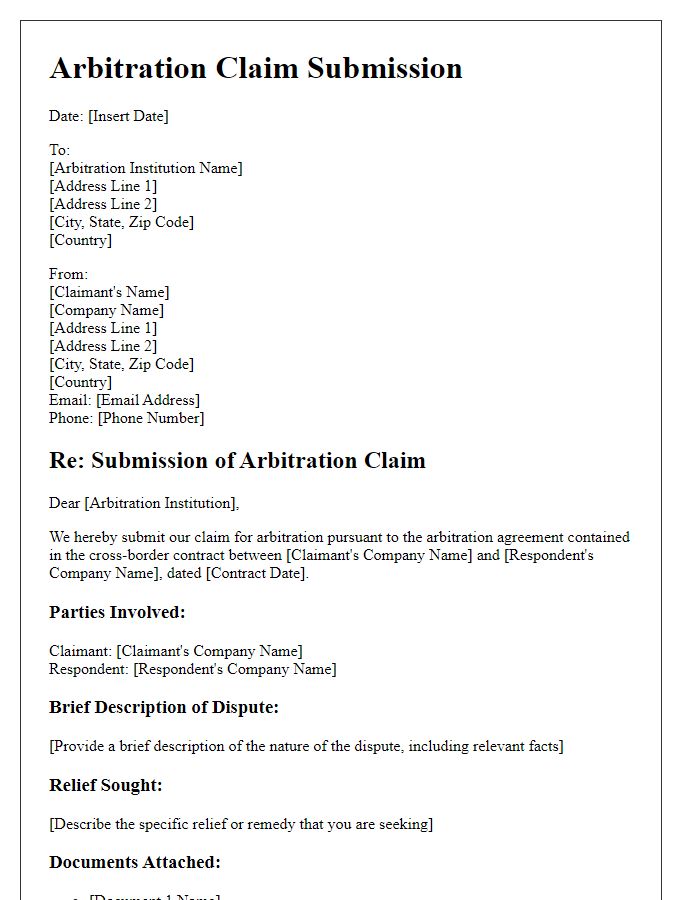

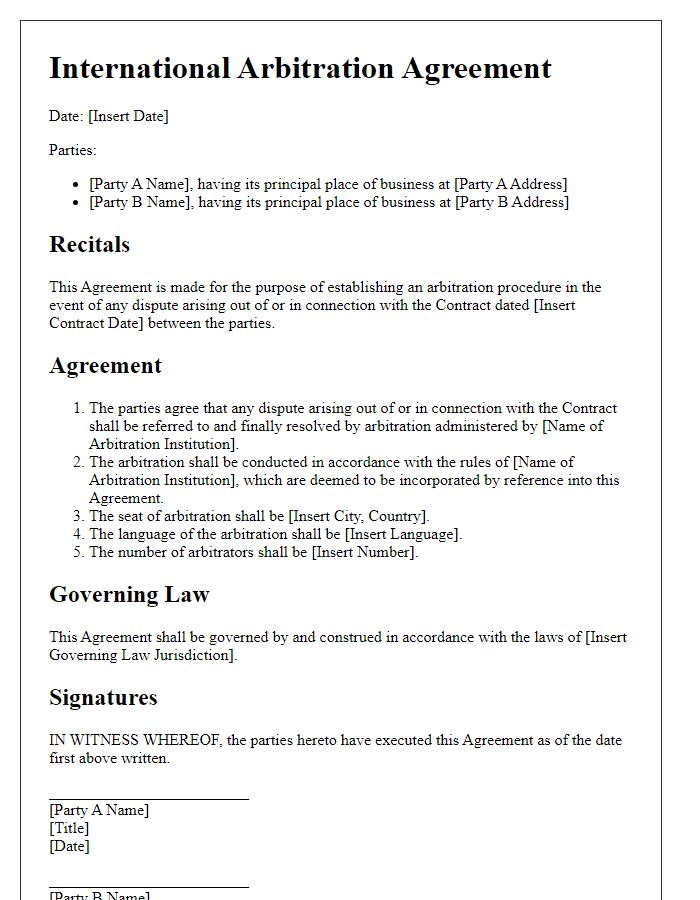
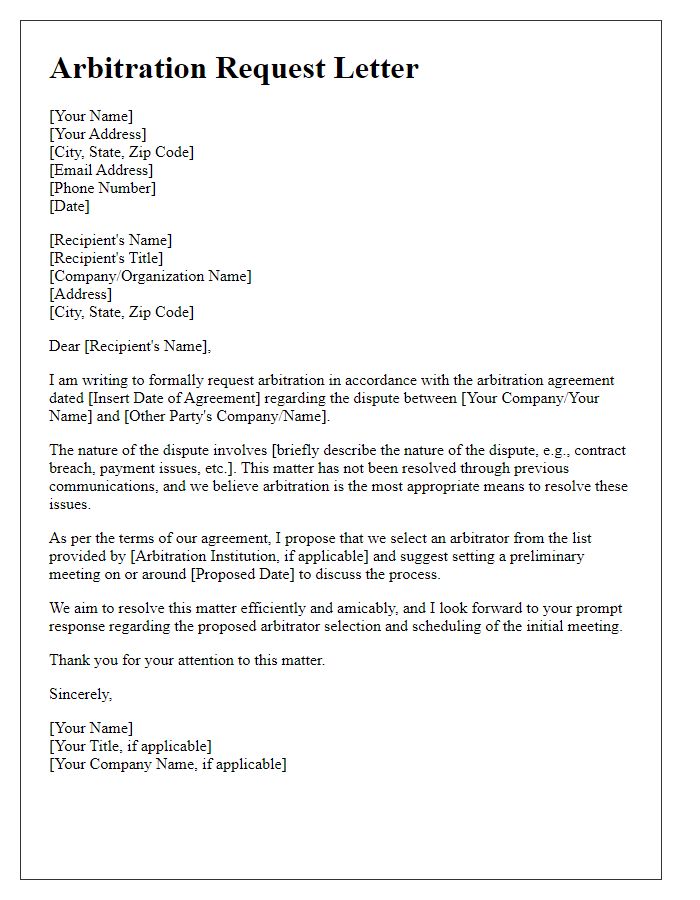
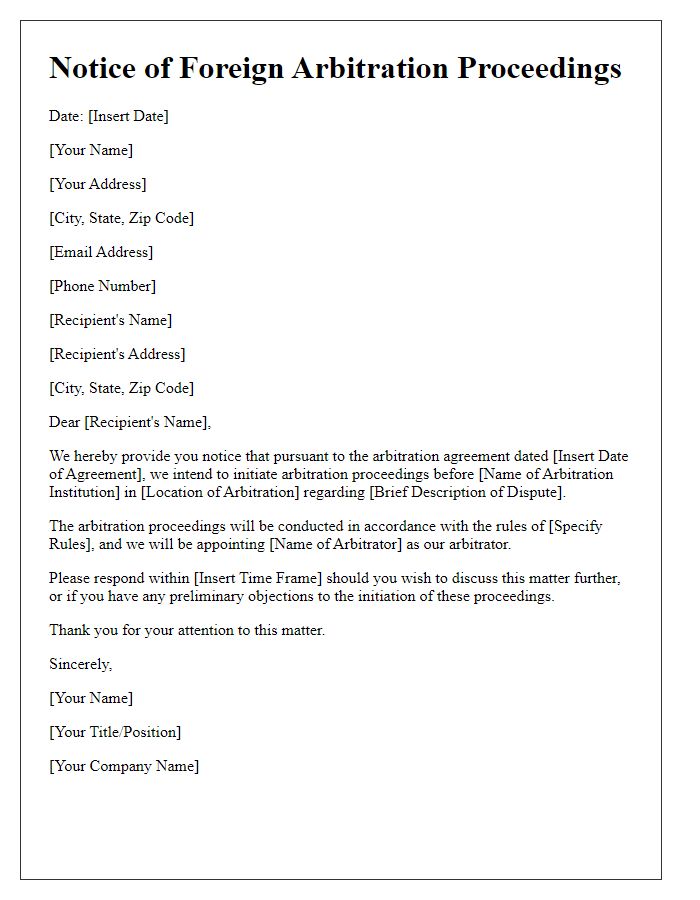
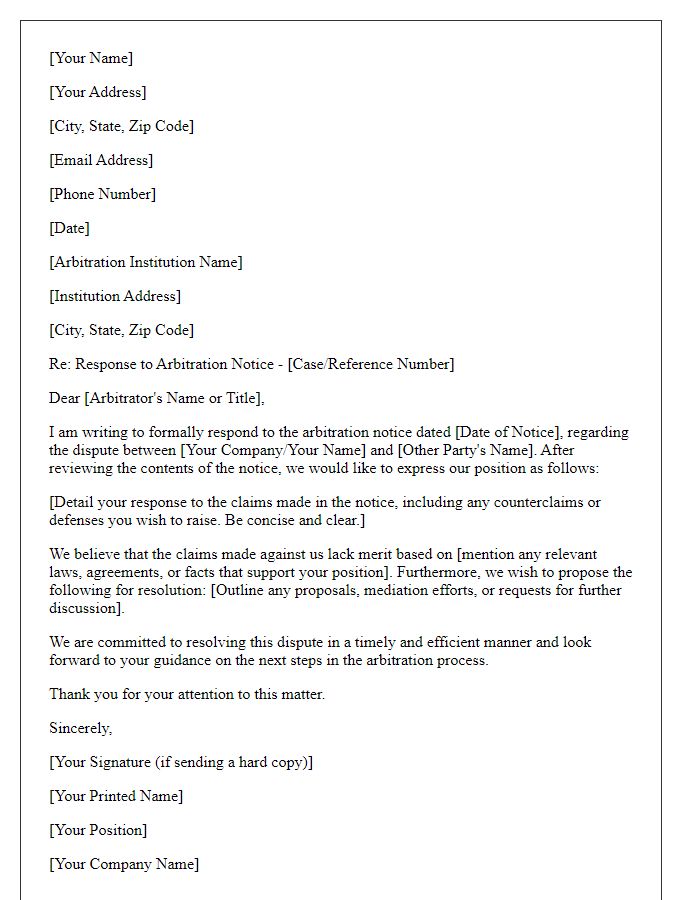
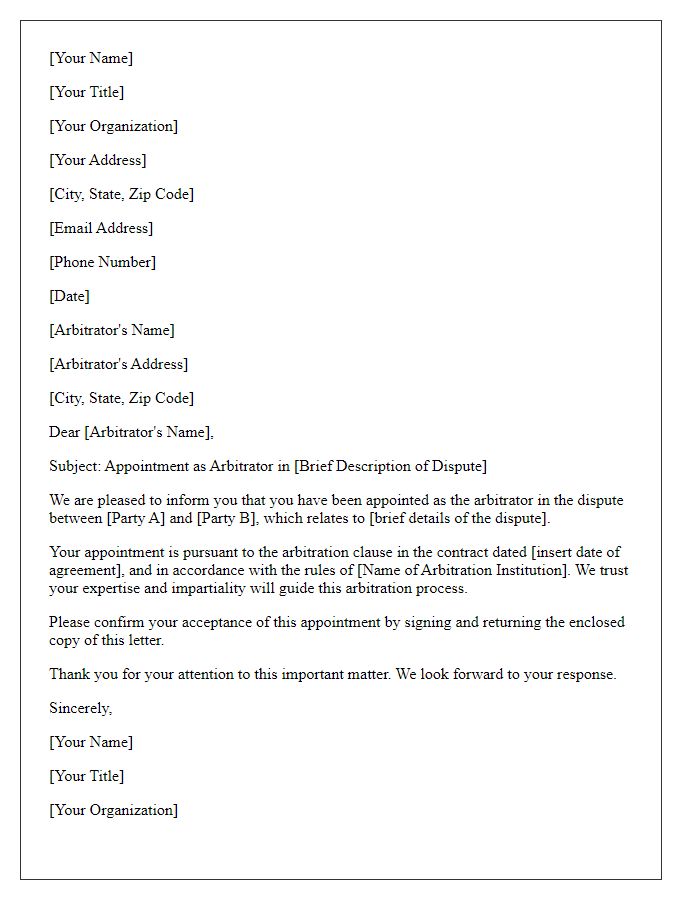
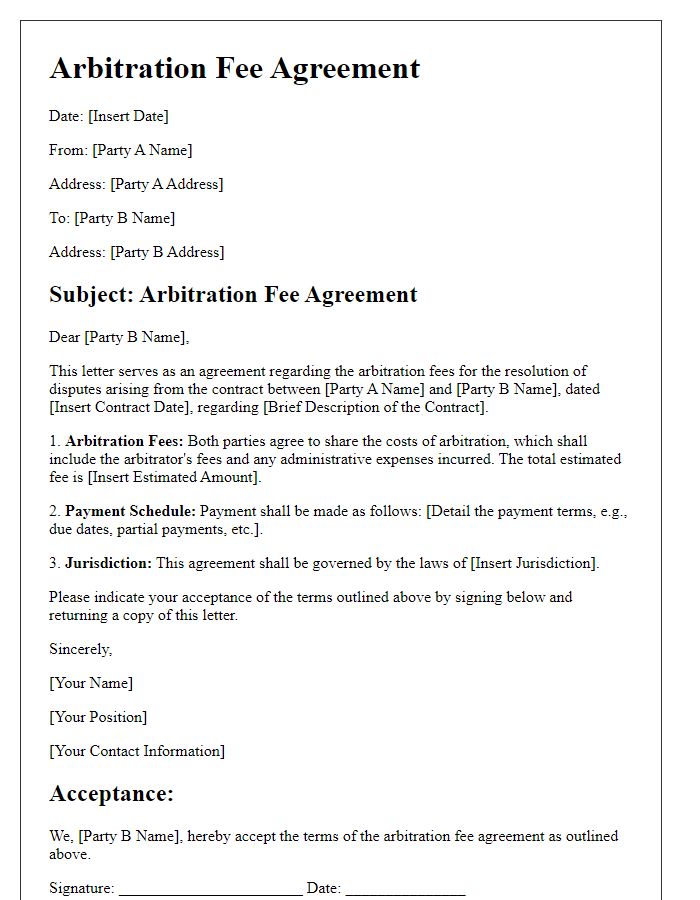
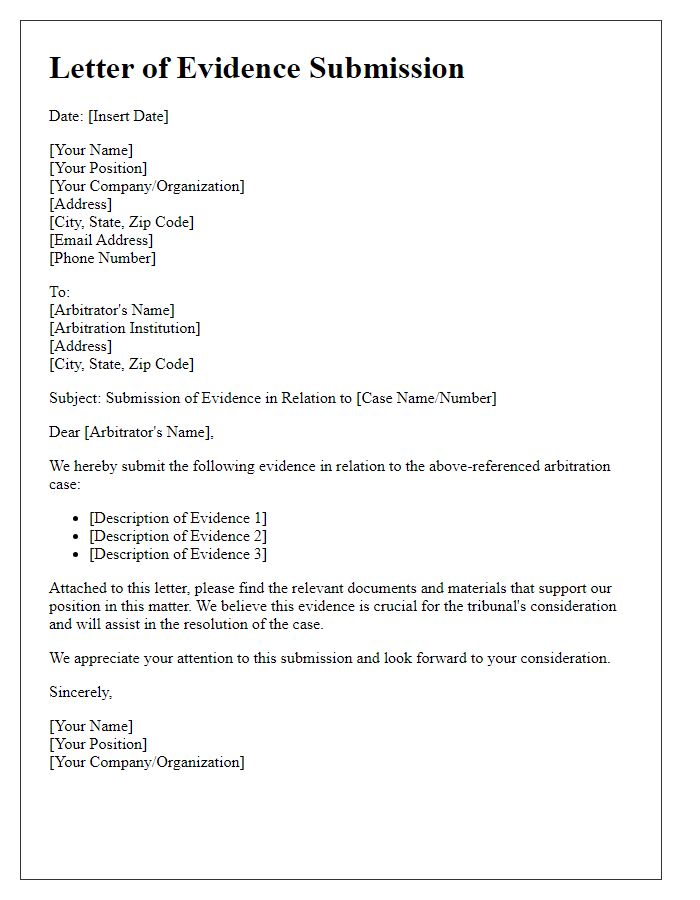
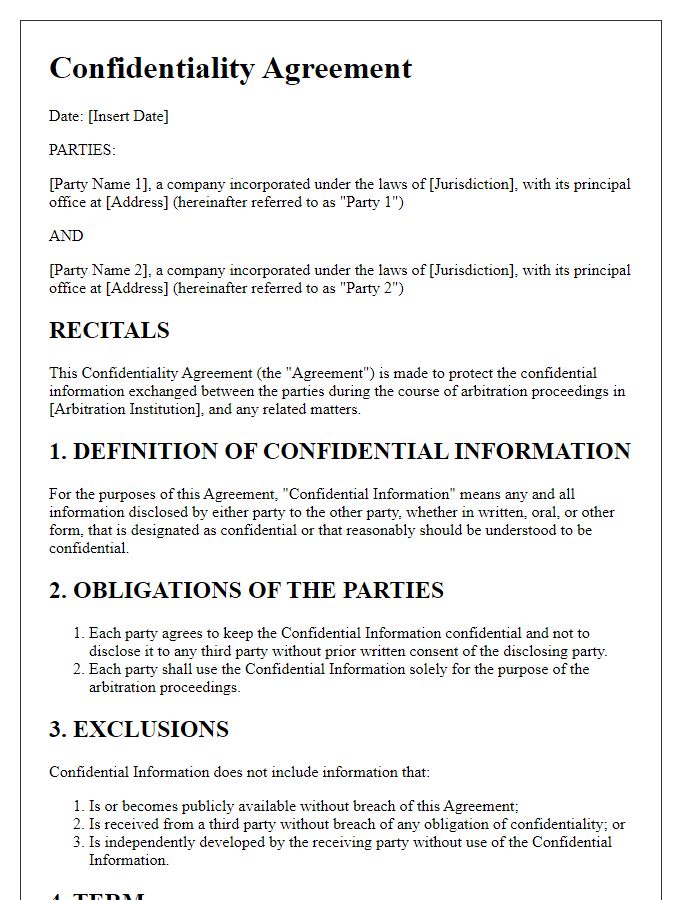
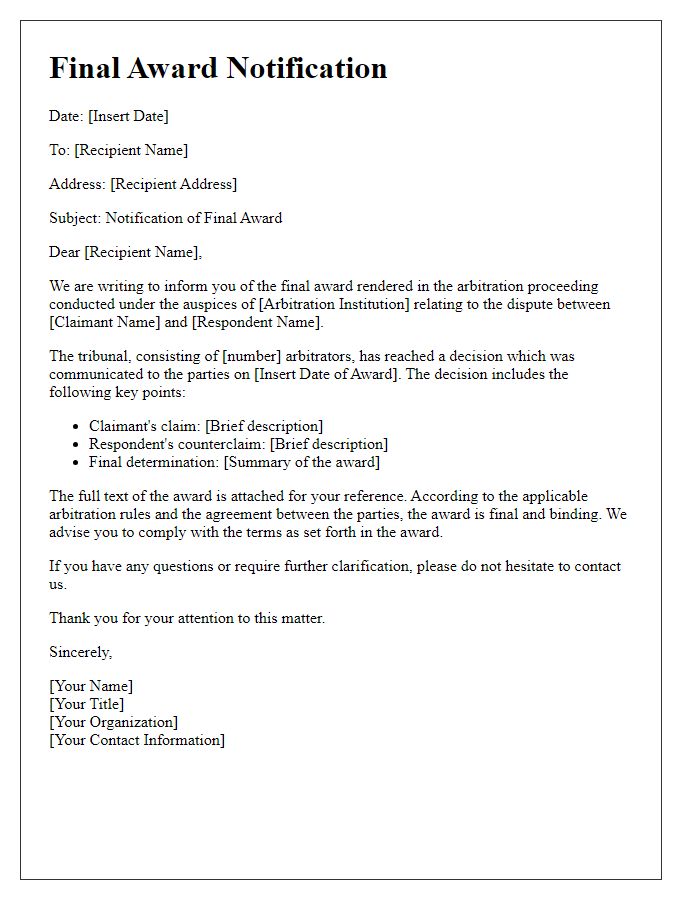


Comments